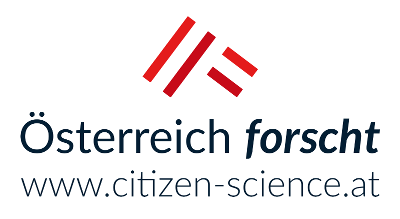Austrian Citizen Science Conference

Under the theme "ver.suchen - ver.einen - ver.antworten" (try - unite - take responsibility), the Austrian Citizen Science Conference (OECSK2023) took place at the Johannes Kepler University in Linz between April 19 - 21, 2023. The OECSK2023 was organised by the Citizen Science Network Austria in close cooperation with Johannes Kepler University Linz, Ars Electronica and the Ludwig Boltzmann Gesellschaft.

No other time has so clearly highlighted the importance of science, research and the communication of results and data as the last few months. Being able to actively address crises as a society is one of the core competencies of citizen science. Committed citizens work hand in hand with researchers to find answers to the current and future challenges of society.
From 28 to 30 June 2022, everything centers around the question "Citizen Science - Why not (actually)?" The focus will be on interested citizens and already active citizen scientists.
The following questions will be examined from different perspectives.
- "Why should I, as a researcher, let interested people actively participate in my research?
- "Why should I, as a citizen scientist, sacrifice my free time and participate in a research project?"
- "What benefits can I derive from citizen science for myself / my family / my district / my local council / my organisation / my institution?"
- "Why should I, as a funder, support citizen science projects?"
- ....
The focus is on the opportunities and challenges of collaborative research, on examples of concrete projects and initiatives.

For the sixth time, almost 300 citizen science enthusiasts, researchers, students, practitioners, met at this transdisciplinary conference to exchange ideas, gain new experiences and present the results of their studies. "Citizen Science: Ambitions and Meaning" was the motto of this year's conference, and the truly diverse programme showed us that this motto resonated well with the citizen science communities in the German-speaking countries, and not only there, but also far beyond. Participants joined online from the USA, Brazil, Spain, Sweden and England, among others. The conference was organised in cooperation with the University of Vienna, Österreich forscht, the University of Natural Resources and Life Sciences Vienna, the Centre for Citizen Science, Bürger schaffen Wissen and Schweiz forscht. Funding was provided by the Federal Ministry for Science Education and Research, the Municipal Department for Environmental Protection of the City of Vienna (MA22) and by the Ludwig Boltzmann Society.
Especially in these times, when science appears in the media as it rarely has before, it was important to talk about the ambitions and the meaning of citizen science.
Editorial Board:
Didone Frigerio, Konrad Lorenz Research Center for Behaviour and Cognition, University of Vienna, Grünau im Almtal, Austria
Daniel Dörler, Institute of Zoology, University of Natural Resources and Life Sciences, Vienna, Austria

In the summer of 2019, the 5th Austrian Citizen Science Conference was held in Tyrol. The University of Innsbruck and the Citizen Science Network Austria invited to Obergurgl, where the Citizen Science Community gathered from 26th to 28th June under the motto "Borders and Transitions" at over 2000m. Hardly any other place was as suitable as Obergurgl for the question of the limits of Citizen Science. Due to its geographical location at political and natural borders, Obergurgl inspired people to explore borders and transitions of and in Citizen Science and they could get to know in detail how to deal with these interfaces. Such border areas are not only boundaries, but also areas of transition and exchange. In this environment questions on how to best design the boundaries and transitions in Citizen Science to other methods and disciplines and how to make positive use of the border tensions where discussed: What is and what may Citizen Science do? Who determines what Citizen Science is allowed to do? What are the examples of boundaries in Citizen Science (projects)? Which inter- and transdisciplinary interfaces arise in Citizen Science projects? These and many other questions were debated in an open and appreciative atmosphere.
